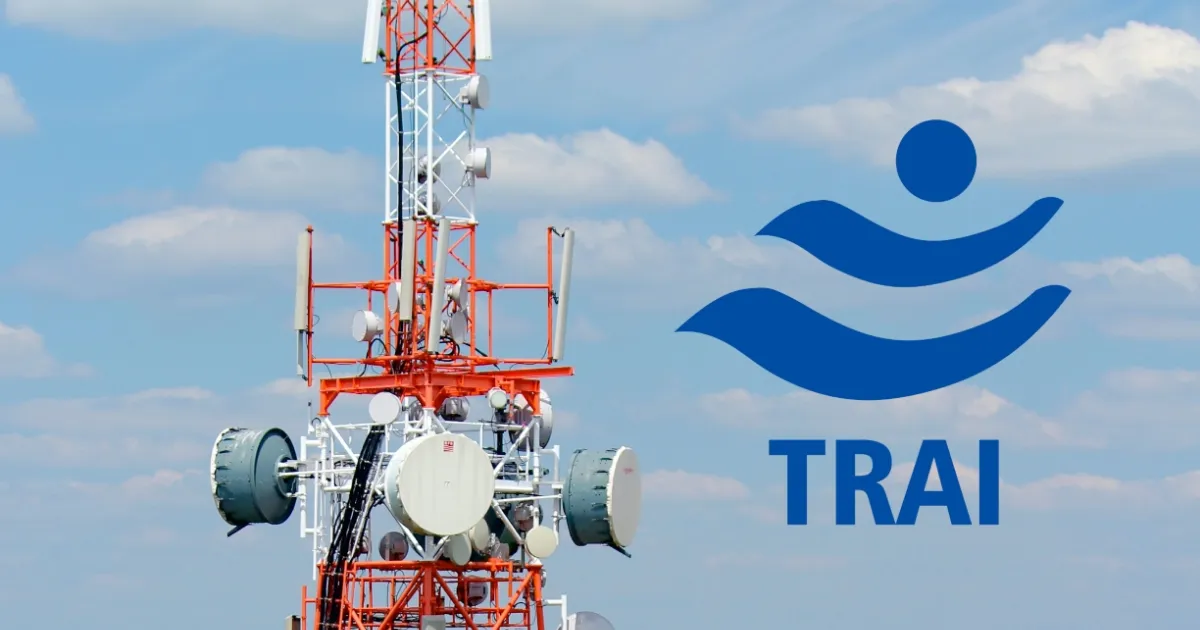Highlight
- TRAI introduces stricter QoS Standards.
- The aim is to improve transparency, accountability, and overall service reliability.
- New rules to compensation for service outages, stricter penalties for telecom providers.
The Telecom Regulatory Authority of India (TRAI) has introduced updated regulations for the Standards of Quality of Service (QoS) for Access and Broadband Services.
These new rules combine previous guidelines for wireline, wireless, and broadband services into one comprehensive framework.
It also addresses advancements like 4G/ 5G network and fibre broadband.
Image Credit – Photo by VD Photography on UnsplashThe updated regulations by TRAI will come into force on October 1, 2024.
The aim is to enhance the quality and transparency of access and broadband services in India.
Here’s what you need to know about the new guidelines.
Empowering Consumers with Information
TRAI will come into force on October 1, 2024A key feature of the new regulations includes the requirement for service providers to display mobile coverage maps for different technologies (2G/3G/4G/5G) on their websites.
This will enable consumers to make more informed decisions.
Moreover, to increase transparency in QoS performance, providers must publish their performance against prescribed parameters online.
The updated regulation also introduces new metrics like jitter and packet drop rate.
It aligns the latency benchmark with global standards to better meet the needs of emerging applications.
The TRAI statement further states, “In addition to requirement for display of mobile coverage map, new parameters like reporting of significant network outages, jitter, maximum bandwidth utilization between radio and core network during busy hour and SMS delivery success rate etc. have been introduced.”
Enhanced Service Monitoring

TRAI has also mandated monthly monitoring of QoS performance for mobile services.
The providers will have six months to transition to this new reporting frequency.
Detailed performance data, including network availability and call drop rates, will now be collected at the cell level.
A clear and uniform measurement methodology will be adopted to make sure consistent reporting across all providers.
Compensation for Service Disruptions

A major new rule requires telecom operators to compensate subscribers for service outages lasting more than two hours at the district level.
Postpaid customers will get a bill rebate proportional to the outage duration, while prepaid customers will have their connection validity extended accordingly.
Stricter Penalties

Meanwhile, TRAI has also doubled the penalty for failing to meet quality benchmarks.
The regulatory body has increased penalties from Rs 50,000 to Rs 1 lakh per violation.
This measure aims to encourage operators to uphold high service standards and minimize disruptions.
The official statement of TRAI also says, “Delivering QoS is a lifecycle activity that can only be achieved through the adoption of best practices in the quality management domain. Therefore, Service providers have been asked to adopt Six Sigma Quality Management Plan to achieve continuous improvement in the quality of services.”
The revised regulations are the outcome of a detailed consultative process.
The roadmap was based on a Consultation Paper on ‘Review of Quality-of-Service Standards for Access Services (Wireless and Wireline) and Broadband (Wireless and Wireline) Services’.
It was issued on 18th August 2023 and comments from the stakeholders were invited thereafter.
An Open House Discussion (OHD) was successfully held on 9th April 2024 with the stakeholders.
All stakeholders and consumer forums participated and shared their opinions on various provisions of the new regulations.
FAQs
Q1. What as per TRAI is the minimum Broadband speed limit?
Answer. According to regulation on “Quality of Service standards for Broadband Services” issued by TRAI on 6th October, 2006, a broadband subscriber must receive a minimum 80% of the subscribed broadband connection speed from ISP Node to user.
Q2. How can I measure the download speed of my Broadband connection?
Answer. There are many online speed test portals online that can be used to test the connection strength.
Customers can also check the speed using the official TRAI My Speed App by clicking on the speed check icon.
The speed of the broadband is displayed generally in Kbps (Kilobits per second).
Q3. Can operators activate or deactivate data on my mobile?
Answer. No service provider can activate or deactivate the data service on the Cellular Mobile Telephone connection without explicit consent.
Subscribers can send SMS by typing ‘START’ or ‘STOP’ to 1925 to activate or deactivate a service.
1925 is a toll-free number and subscribers can even make calls to 1925 for activation/deactivation of data services.
Q4. What is TRAI’s Do Not Disturb (DND 2.0) app?
Answer. TRAI’s DND app helps users to register their preference for DND, change his preference and monitor the status of his complaints with regards to UCC. Other features of the app include –
- Intelligent spam detection engine (for SMS only) to assist the subscriber in reporting.
- Anti-SPAM engine works on crowd sourced feedback and dictionary built-up process.
- Suggest probable SPAM for unknown SMSs/ Calls.
- Suggest/ mark unsolicited Calls/ SMS as SPAM.
- Updates about action taken on complaints within the App.
Q5. What does TRAI do?
Answer. TRAI is a telecom regulatory body that ensures the smooth execution of work by service providers.
It oversees hassle-free services, regulates the quality of services, makes sure consumer grievances are handled and reviewed to ensure quick response and solutions to customers by service providers.
Q6. Telecom Service Providers Committed to Quality Despite Regulatory Challenges: COAI. Details?
Answer. COAI’s member Telecom Service Providers (TSPs) have consistently invested in enhancing Quality of Service (QoS) through significant improvements in network infrastructure, resulting in greater stability and reliability.
The industry has embraced advanced technologies and automation tools, including predictive maintenance and AI-driven analytics, to proactively address network issues.
Moreover, major initiatives are underway to fiberize towers across India, which is a crucial step for the efficient deployment of 5G services.
While TRAI has tightened the QoS benchmarks over the years, the ground realities remain unchanged.
TSPs still grapple with Right of Way (RoW) issues when acquiring permissions for infrastructure deployment in public and private land for the installation of cell towers and fiber-optic cables.
The situation is further aggravated due to additional requirement of street furniture for the 5G networks.
Moreover, interference from various sources, such as other wireless devices and electromagnetic interference, degrade signal quality and network performance.
Further, illegal boosters and repeaters used by unauthorised agents, as well as the cases of theft of equipment are also external factors which, nevertheless, impact the QoS.
Besides, frequent takedown of the overhead fiber by the authorities have a significant impact in QoS as well.
TSPs have limited control over these external sources which adversely impact the Quality of Services.
Despite these challenges, TSPs have consistently met TRAI’s QoS benchmarks.
The industry expresses concern over the proposed regulations, which not only tighten benchmarks but also shift from quarterly to monthly reporting and site to cell level reporting in many cases.
In fact, the QoS parameters prescribed in the new Regulations have not been introduced by any other regulator in other similar economies.
These changes are expected to significantly increase the compliance as well as the cost burden on telecom operators, and without commensurate benefits for the customers.
While we are disappointed with the stringency of these new regulations, we remain committed to engaging constructively with TRAI on QoS-related matters.
Our member organizations will continue to strive for excellence in service quality while advocating for regulations that recognize the practical challenges faced by our industry.
Also Read: TRAI Introduces New SIM Replacement and Network Porting Guidelines Effective July 1, 2024
